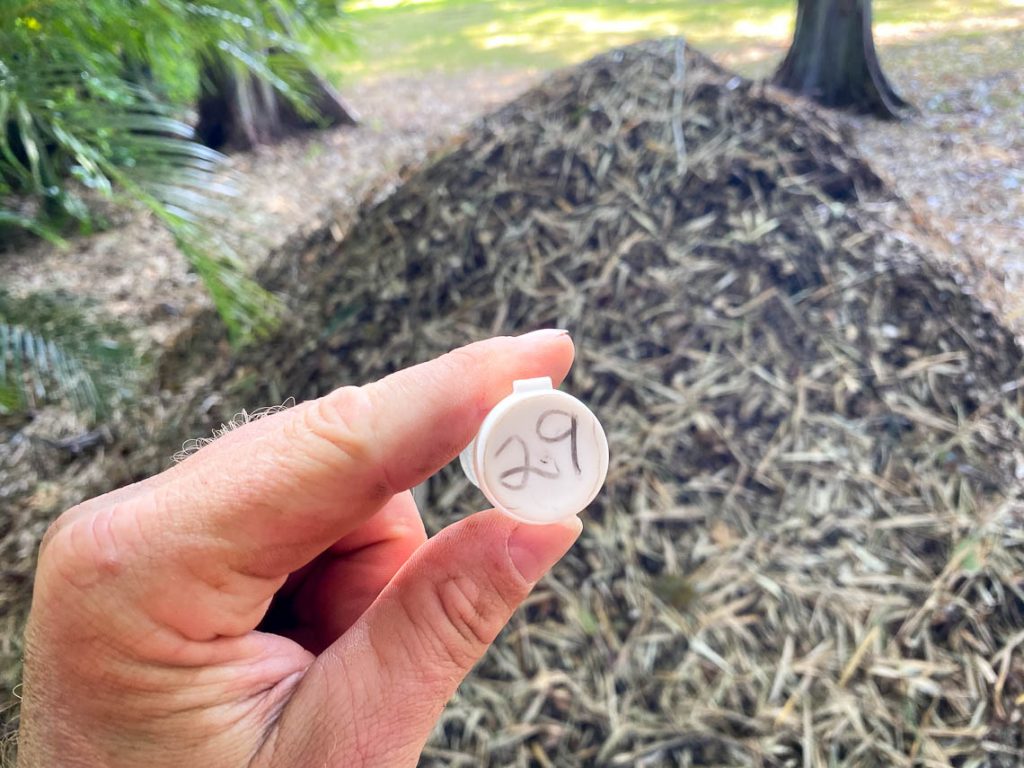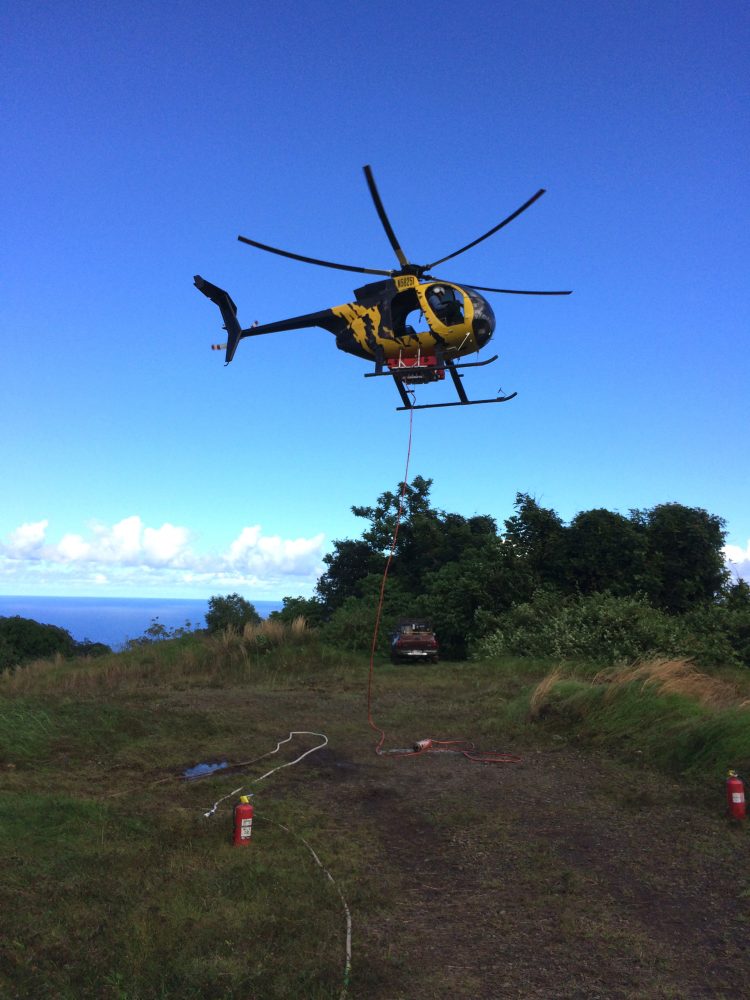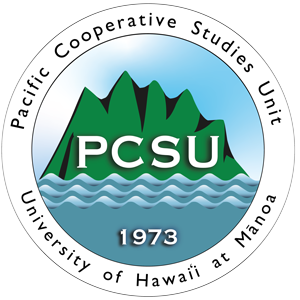The final quarter of 2020 was relatively typical for the LFA battle on Maui. No new infestations were discovered or reported so the team focused on existing sites. Following a year of treatments at two of the most extensive infestations – Twin Falls and Waiheʻe Valley – MISC did full-site surveys in December. During these surveys, staff dropped over a thousand vials baited with peanut butter every few feet throughout each location. We detected a few “hot spots,” which is normal at this stage of control, and the crew will zero in on those areas over the next three months to stamp out remaining pockets. In addition to the large and complicated site in Nāhiku (200 acres of wet jungle), only one other site remains under full treatment: the recently discovered Kaupakalua infestation in Haʻikū, which was detected in September 2020. Community reports of stinging ants, combined with the LFA crew’s hard work and dedication, are clearly paying off.

Full-site surveys, where staff drop peanut-butter baited vials every few feet, identify “hot spots” and ensure treatments are effective.
In November, the crew completed a full-site aerial treatment of the Nāhiku infestation. Four more treatments will follow in the first few months of 2021. After we finish this series of treatments, MISC will conduct a week-long survey – with staff from all of MISC’s field crews carefully searching the densely vegetated 200-acre site for any stubborn hot spots.

MISC continues with helicopter applications of ant birth control to treat the 200-acre infestation of little fire ants in the dense jungle of Nāhiku.
Elsewhere on Maui, the crew continued monitoring sites in post-treatment to ensure these locations are LFA-free. Staff completed full-site surveys at formerly-infested sites at Kapalua, Lilikoʻi, Kaʻelekū, a resort in Wailea, and a nursery in Kīhei – at all but the Kaʻelekū site there were zero detections of LFA. The Hāna miconia crew helped clear access trails in the Kaʻelekū area and Twin Falls to allow staff to thoroughly survey for the elusive ant.
Public outreach efforts in the Haʻikū area after the discovery of LFA at a site on Kaupakalua Road resulted in a record outpouring of ant samples submitted by members of the public wanting to know if the ants in their Haʻikū yards might also be LFA. Fortunately, none of these samples contained LFA. MISC continues to appreciate high levels of awareness and participation by the community throughout the island.
You can find all past updates here: UPDATES
Other species updates from this quarter are below:
[pt_view id=”243f8ffowl”]
